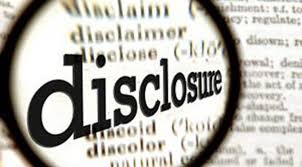Introduction:
Disclosure plays a crucial role in our daily interactions, whether we are sharing personal or professional information. Proper handling of disclosure is vital to maintaining healthy relationships, trust, and a professional image. This article provides practical guidance on dealing effectively with the disclosure of information.
1. Understand your audience:
Before sharing any information, it is important to understand the needs, motives, and context of those you are addressing. Consider why they might be interested in your disclosure and how the information could affect them. This helps you decide whether it’s appropriate to share the information or not.
2. Be precise and selective with your disclosure:
When disclosing information, it’s essential to be accurate and concise. Provide relevant details to ensure your audience comprehends the subject at hand while avoiding unnecessary or confidential specifics that may confuse or distress them.
3. Timing is key:
The impact of disclosure can vary depending on when it occurs. Assess the situation and potential consequences before deciding on the right moment for sharing sensitive information. Waiting for an appropriate time can minimize negative after-effects and improve understanding.
4. Balance transparency and privacy:
While openness can foster strong connections and trust, everyone has a right to privacy as well. When determining if it’s appropriate to disclose information about others or yourself, weigh the benefits of transparency against the need for confidentiality.
5. Establish clear boundaries:
Identify your personal and professional boundaries regarding disclosure early on in any relationship or conversation. Clearly communicating these limits ensures that all parties have accurate expectations about what should be shared.
6. Prepare for potential reactions:
Some disclosures may evoke strong emotional reactions from others. Anticipate such responses and prepare yourself to handle them appropriately with empathy, understanding, and respect for differing perspectives.
7. Manage unintended consequences:
Disclosure may lead to unexpected outcomes, both positive and negative. Examine these results critically and be prepared to address any issues that arise. This includes taking responsibility for the consequences of your disclosure and being open to feedback.
8. Review legal and ethical considerations:
In certain situations, disclosing or withholding information carries legal or ethical implications. Be well-versed in relevant laws or ethical guidelines related to your profession, industry, or context to ensure compliance and avoid potential ramifications.
Conclusion:
Dealing with disclosure requires sensitivity to the situation and a thoughtful approach that considers the needs of all involved parties. By understanding your audience, timing your disclosure appropriately, respecting personal privacy, anticipating reactions, and adhering to legal and ethical obligations, you will be well-equipped to navigate the delicate balance between openness and discretion in your everyday interactions.





